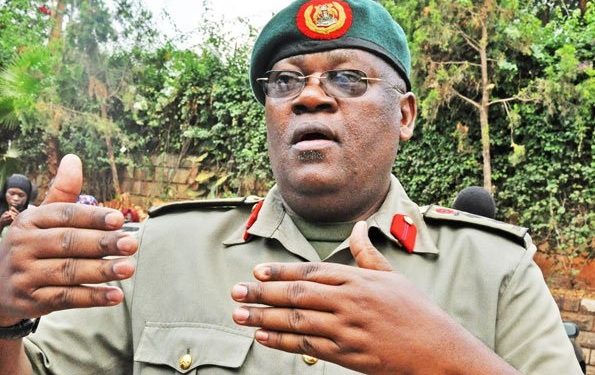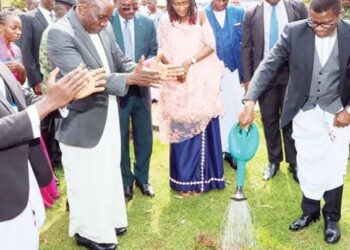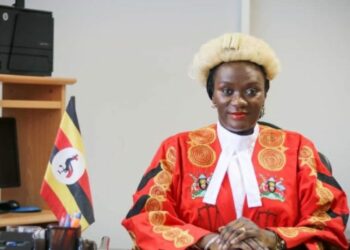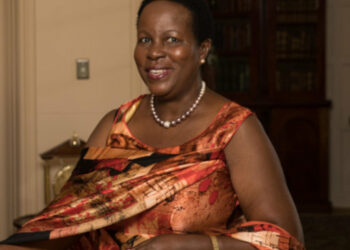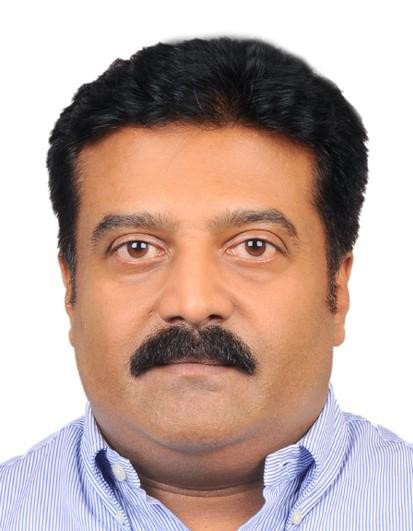I woke up yesterday morning only to hear that the deputy head of the Uganda Media Centre Col. Shaban Bantariza is dead. The news struck me like a thunderbolt partly part because I least expected it but largely because Bantariza was not just a friend but also someone I greatly admired. He embodied that great and enduring liberal spirit of the Uganda People’s Defence Forces (UPDF).
I met Bantariza in the late 1990s but got to deal with him a lot beginning in the early 2000s most especially when he was the UPDF spokesperson. At that time the UPDF was beleaguered, riddled with corruption scandals at home and in the DR Congo and in a seeming inability to end a violent rebellion in northern Uganda.
President Yoweri Museveni came to power in 1986 criticizing previous armies of having been murderous and parasitic on the population. He promised two things: to create a disciplined army that would not indulge in extrajudicial killings and to make the army a productive agent in its own right by getting involved in business. By 2000, this promise was faltering. As the war against the Lord’s Resistance Army in northern Uganda intensified, the local population accused UPDF of carrying out extra judicial killings.
As Museveni consolidated power, corruption took hold in the wider government but corrosively in the army. Instead of being productive, the UPDF had become a springboard of private profiteers who created ghost soldiers and bought substandard military equipment, expired food rations and undersize uniforms. It’s business arm, National Enterprises Corporation, was cannibalized and its assets were being sold. I was a young journalist who identified with Museveni’s vision. I made it my mission to hold the president personally, the government generally and the UPDF specifically accountable to their promise.
My arsenal was a series of investigative stories in Daily Monitor newspaper, which attracted the interest of radio and television talk show hosts. So I became a regular panelist on radio and television. Later I began my own radio show with the hubris of naming it after myself: Andrew Mwenda Live went on air on Monday March 5th, 2001 and at the risk of sounding modest, set the country on fire.
That same year, Maj Gen James Kazini was appointed army commander and he appointed Bantariza the army spokesman. As the war raged and corruption spiked, UPDF became an important target of my journalistic work, thereby bringing me in regular contact with its spokesman. In most countries this would be a struggle involving violence and the risk of death. In Museveni’s (and UPDF’s) Uganda, it became an intellectual duel.
In the morning I would have an investigative story about a big corruption scandal or a major human rights violation by the army in Daily Monitor. Then I would invite Bantariza (or the then Chief of Military Intelligence, Brig. Nobel Mayombo, or the then coordinator of security services, Gen. David Tinyefuza, now Sejusa, or the then chief political commissar of the army, Gen Kale Kayihura etc.) to my radio show for a discussion in the evening. It is a powerful statement of UPDF’s liberal foundations that rarely did these officers turndown my invitations.
As was the format of the show, the discussions were conducted without any debatorial softness. They were hard hitting, in-your-face intellectual boxing matches. My role was to attack, theirs to defend against my punches. The format was to make the discussion fast paced and hard hitting but also entertaining and make the listener feel he is listening to friends in a bar discussing national issues. I would be deliberately provocative and increase the temple and pace of the discussion to fever pitch. Bantarize turned out to be the best intellectual boxing partner I could ever host.
It is remarkable that UPDF (represented by Bantariza, Mayombo, Tinyefuza and Kayihura) always showed up clearly knowing that I had mountains of dirt to throw at them. On air the intensity of the debate gave some listeners the impression that these were adversaries in mortal combat. In real fact we were intellectual and ideological allies working together to improve our country, its institutions and processes. UPDF (and by extension NRM) made me. My radio show always featured heavy weights of NRM/UPDF to face the fire, and Museveni himself put in an appearance.
This experience explains my hostility to the current opposition. Although I was seen as the leading voice against the excesses of the NRM, I spent a lot of time with security and military chiefs, cabinet ministers and the president. These became my sources of information on the internal workings of the system, information that provided considerable grist to my journalistic mill. The current opposition in Uganda is hostile and intolerant of the very dynamics that made me a successful investigative journalist and radio talk show host i.e. that I could freely criticise NRM and UPDF leaders and still remain friends with them and they come to my show.
Bantariza as army spokesman was the most regular of the army officers. There are two most memorable reverting shows I had with him. One was a television debate on WBS’s Issues at Hand, on ghost soldiers in UPDF; the other was a radio show on KFM where a UPDF field court martial had sentenced and executed two soldiers for allegedly killing an Irish priest in Karamoja. Hot and tense on air, they remain some of the best treasures of my journalistic work. Up until recently, Bantariza would visit me and we replay these shows and reminisce over “the good old days”.
This is what defines UPDF and NRM, the spirit of free wheeling debate that makes our young democracy a remarkable achievement of the human imagination. Bantariza always showed up to defend the institution he served and loved even when he knew my evidence overwhelming and his case was weak. But once on the show he fought the battle with relentless tenacity. It made me admire him.
Of course there are many occasions when NRM and UPDF have employed highhanded measures to stifle free expression and debate. I was a victim of these moments and many times went to jail for it. But when placed on the bigger context, one realizes that these bad moments are small compared to the space for free expression that NRM has engendered and UPDF allowed and tolerated and defended. Indeed the more we shout loudly in media that NRM is a dictatorship, the more we disprove our own case.
Bantariza’s greatest gifts were quick wit and a fast-speaking speed, passion for his work, a strong identity with the institution he served and loved and an incredible intellectual ability to even make UPDF’s apparent weaknesses seem strengths. For instance if the failure in the army was overwhelming, he would argue that it is a lesson to the institution from which it is learning. If an act were embarrassing, he would argue it reflected the weaknesses of the individuals involved than the workings of the institution. Where the evidence was too powerful he would bluff and claim the documents were forged. Thus often he would move from defence to offense and accuse me of forgery and lies against the UPDF.
After every heated show, Bantariza and I would walk to my office for coffee and talk about the challenges of managing a poor country. He was a soldier with a profound commitment to his country and its army. This made him tolerate our criticism, which he saw as a vehicle to its improvement. UPDF is yet to produce another spokesman of his energy, quick wit, intellectual gifts and speed of speaking. Col. Bantariza, you played your role with excellence and distinction. Now you can rest in eternal peace.
Do you have a story in your community or an opinion to share with us: Email us at editorial@watchdoguganda.com


